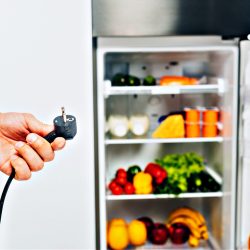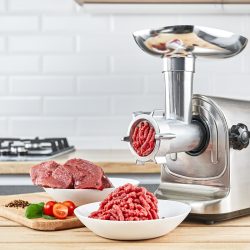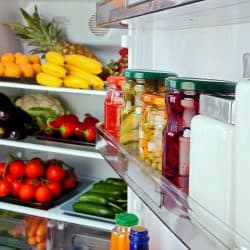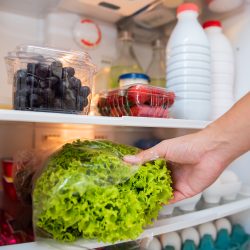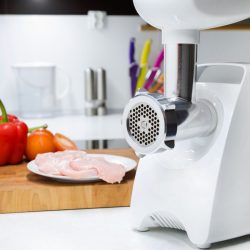When you finish eating your food, it's almost instinct to store it away in the fridge. But, does the method of storage matter? More specifically, will food dry out if you leave it inside the refrigerator without covering it? If that's your concern, we've done plenty of research and have the answer for you.
Leaving food uncovered in the refrigerator is a bad idea. In general, refrigerators are dry environments, affecting how food ages inside them. The dry air in a fridge will absorb moisture from any food item that it touches, resulting in flavorless, dry leftovers.
Besides drying out your food, are there other aspects you should consider when storing items away in a fridge? What are the best ways to avoid having food dry out? These are some of the concerns we cover further ahead. If you'd like to learn more, keep reading.
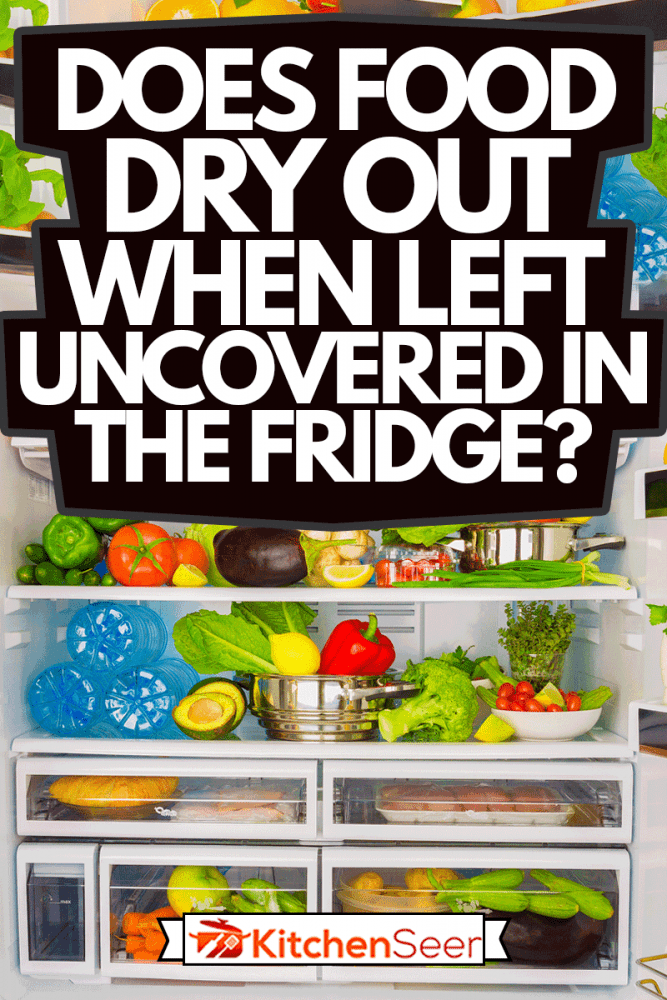
Inside The Refrigerator
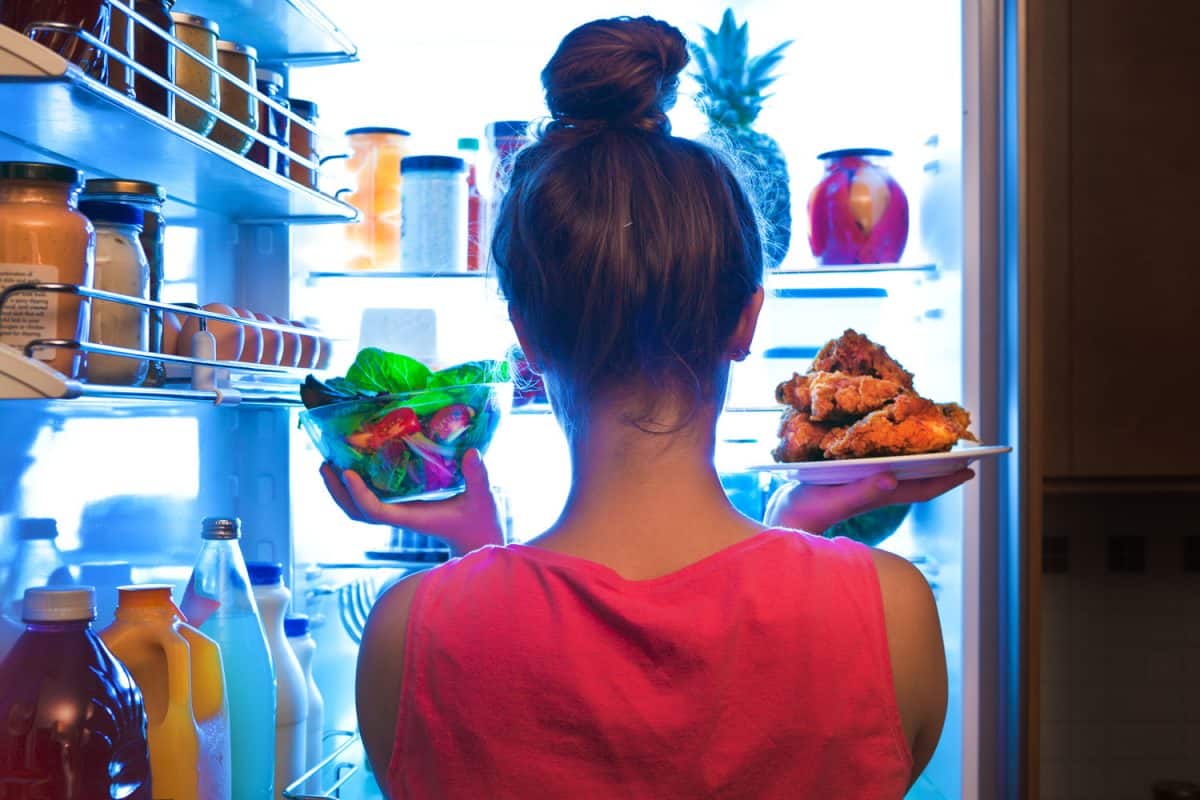
As you might already know, refrigerators go through various cycles to stay cold. When a fridge circulates cool air inside, this process indirectly encourages air to absorb moisture from your food. It mainly concerns maintaining temperature.
Let's go over what causes food to dry out. In general, the temperature inside a fridge will be around 37 degrees Fahrenheit. It might be lower or higher, but we'll use that figure for our example.
Of course, if you want to keep your food fresh, a refrigerator will need to maintain that temperature of 37 degrees. Now, you might be thinking, that shouldn't be hard, as it's an enclosed space.
Unfortunately, it's not as easy as it seems. The only way it would be easy is if you never open your refrigerator. Additionally, it would have to be insulated perfectly to prevent heat from leaking inside.
For this reason, it goes through a constant cooling cycle to reach its internal temperature target. A fridge will typically cool air lower than it needs to be, so if the target is 37, your fridge will circulate air at 34 degrees Fahrenheit.
How Air Affects Moisture
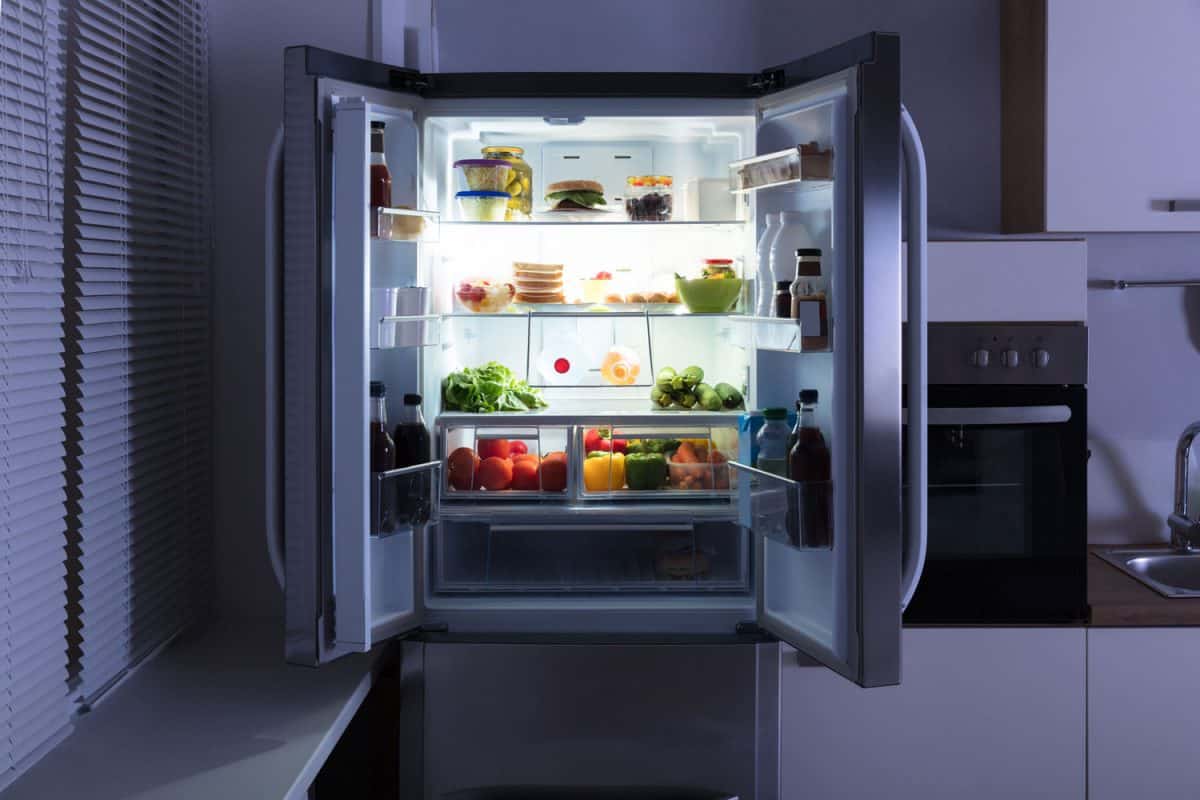
Now, we're getting closer to the culprit for moisture loss. The culprit is cold air or air in general. Cold air doesn't hold much moisture, hence why your food always seems to be dry after a few days inside the fridge.
However, once the temperature rises, the air will hold more moisture. You'd have to think of it like this, what do you do when you want to dry something? The standard solution is to apply warm air to the wet item.
That's because warm air absorbs moisture. Generally, refrigerators will have a set temperature that they need to maintain. For example, a fridge needs to maintain 37 degrees, so it will cool down to around 34 degrees before turning off.
Here, we can notice a slight difference between the target temperature and the air circulating. So, as the colder air enters the main fridge body, it will warm up a tiny bit. As you can already guess, this means it's capable of holding more moisture.
Now that the air is slightly warmer, it will draw moisture out of any foods that contain water. In addition, the fridge is constantly running. Thus, this process isn't a one-time thing. It will continue to happen to maintain its desired internal temperature.
Other Things Air Will Affect
The reason for dry food doesn't stop at moisture. Air will carry a lot of things around your fridge. In some cases, it might even spread contaminants to other foods. So, if you store food without cover, you run into the risk of cross-contamination.
It raises the question, what foods put us at risk of foodborne bacteria?
Can You Leave Meat Uncovered In The Fridge?
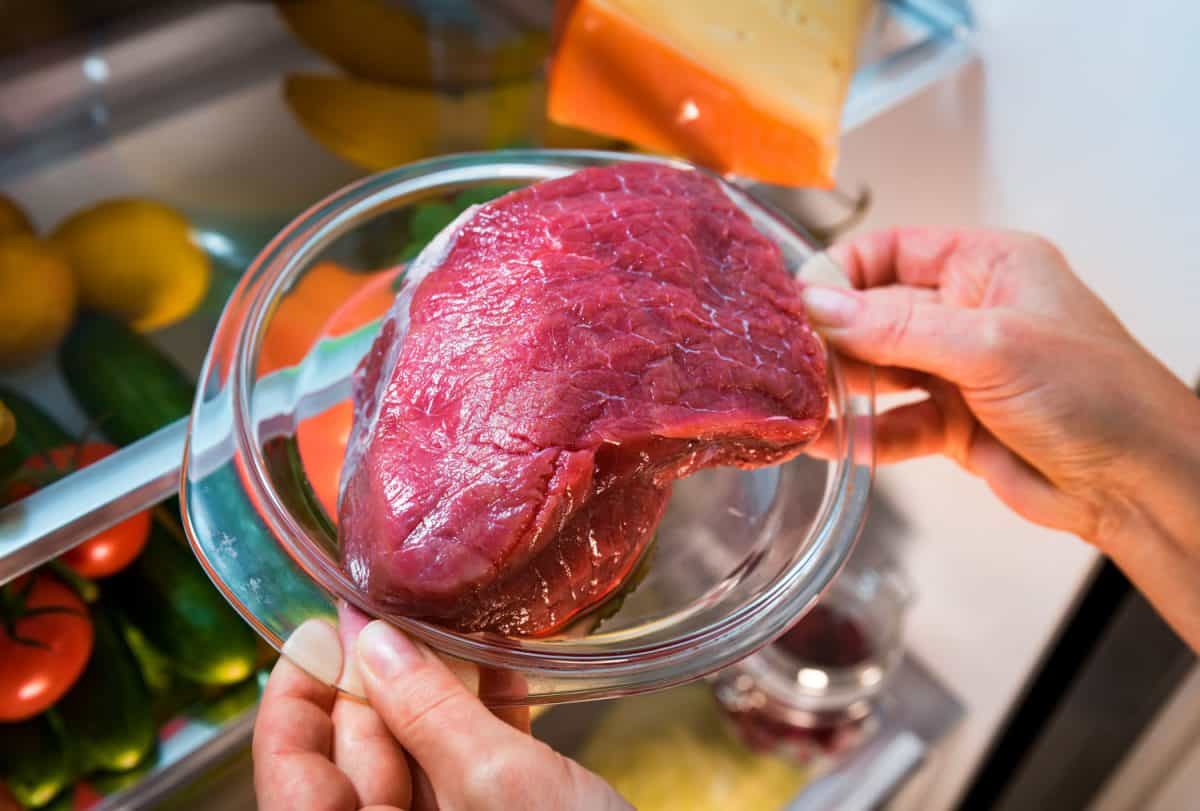
In general, whether cooked or raw, meat is a breeding ground for bacteria. That said, you should cover it to prevent it from contaminating other foods nearby.
However, it's generally acceptable to leave meat uncovered in the fridge under certain conditions. If you must leave it inside your fridge without a cover, put it on the bottom shelf with a platform underneath the plate/tray.
This way, if there is any spillage of the meat's liquids, the platform will catch it. Placing it on the bottom shelf also ensures it doesn't spill and contaminate other foods. Another preventative step would be to isolate it.
From here, make sure to use it within 36 hours to avoid spoilage. If you plan on doing a dry brine on the meat, leaving it uncovered can be beneficial because it will aid in drying it out.
Why You Still Might Want To Cover Meat
Depending on the condition of the fridge, you might want to avoid leaving meat uncovered. The reason is that the air inside will make it taste worse. Fridges spend most of the time with the door closed.
As a result, it will trap odors from various foods. In general, foods will typically absorb those odors. Thus, you get meat that will taste funny if it's in there for a while.
Apart from that, you still run a risk of cross-contamination. Again, it depends on how well you're maintaining the inside of your fridge. If it's relatively dirty, there's a risk that foodborne illnesses like listeria can come into play.
Items above could also drop into the container. In this situation, the meat could mix with other foods, and since you can't control what happens in a fridge 24/7, you might be cooking it with a food item that could trigger someone's allergies.
Of course, this depends on what you're planning to do. If you plan on doing a dry brine, use the safe storage tips above to avoid food contamination. Otherwise, it might make more sense to cover your meat up.
Like we said, this way, dirt and particles from other foods won't drop into the container holding the meat. It also helps keep its flavor fresh, which is always important.
How Do You Keep Meat From Drying Out In The Fridge?
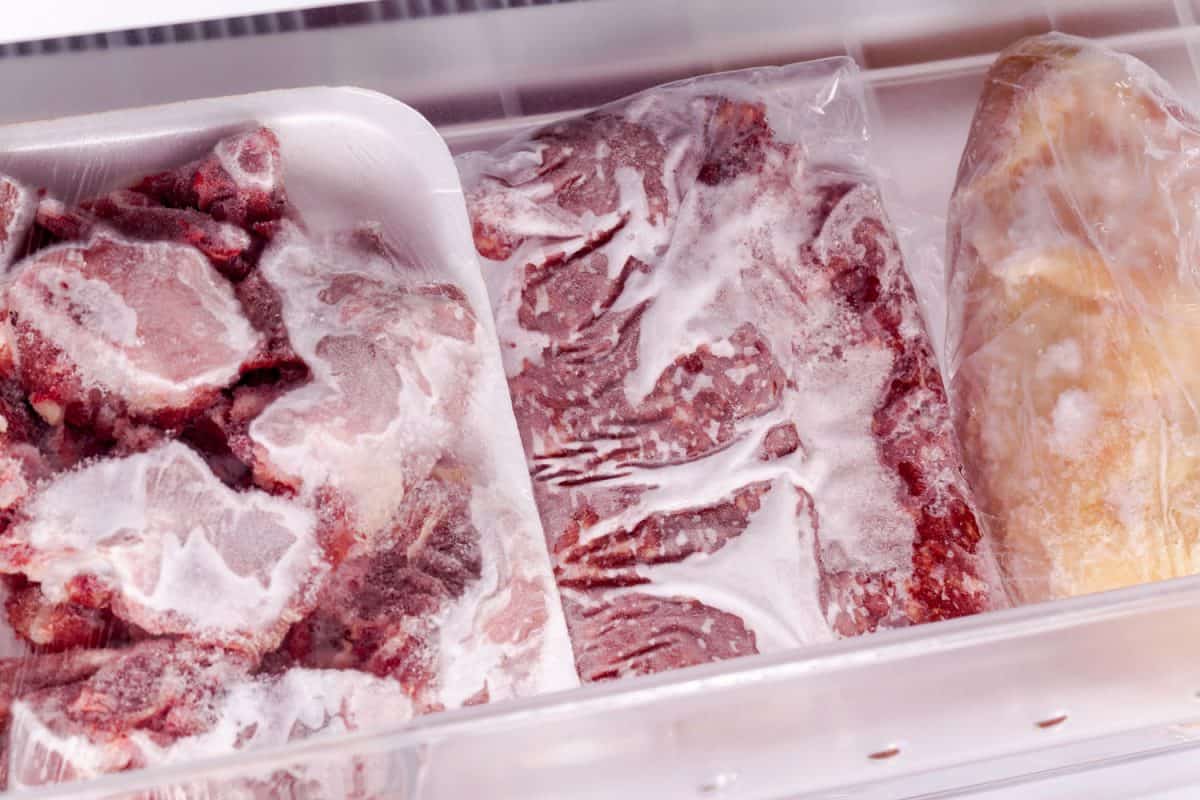
The best way to keep meat from drying out in the fridge is to keep it in its original packaging until you're ready to use it. As we mentioned, make sure to keep it separate from other food items. You can also use a platform under the plate or tray to hold the meat while it's inside the refrigerator.
That said, if you no longer have the original packaging, you can use any clean, sealable container for storage. This way, you can always have a protective barrier from the refrigerator air that draws out moisture.
Does the Fridge Remove Moisture?
Yes, the fridge does remove moisture from food. According to GE, one of the main goals of a refrigerator is to remove moisture present in the air inside the unit.
However, if you notice problems with condensation inside your fridge, it can indicate a few problems. The first would concern the door. The door needs to close completely to keep warm, humid air outside.
When you notice that the door isn't closing, make sure food items aren't blocking it from closing completely. Otherwise, you'd need to inspect the seal for damage.
It's also important to note that open food containers can also contribute to humidity inside a refrigerator. For this reason, you'd generally want to keep every food covered. It's the best way to avoid contamination, odor transfer, and ensure a fresh taste.
Lastly, if it's an extremely humid day, it's best to avoid opening the fridge frequently. Every time you open it, you allow moist air inside. As a result, you can expect condensation even if it's never happened before.
Does The Refrigerator Dry Out Fruit?
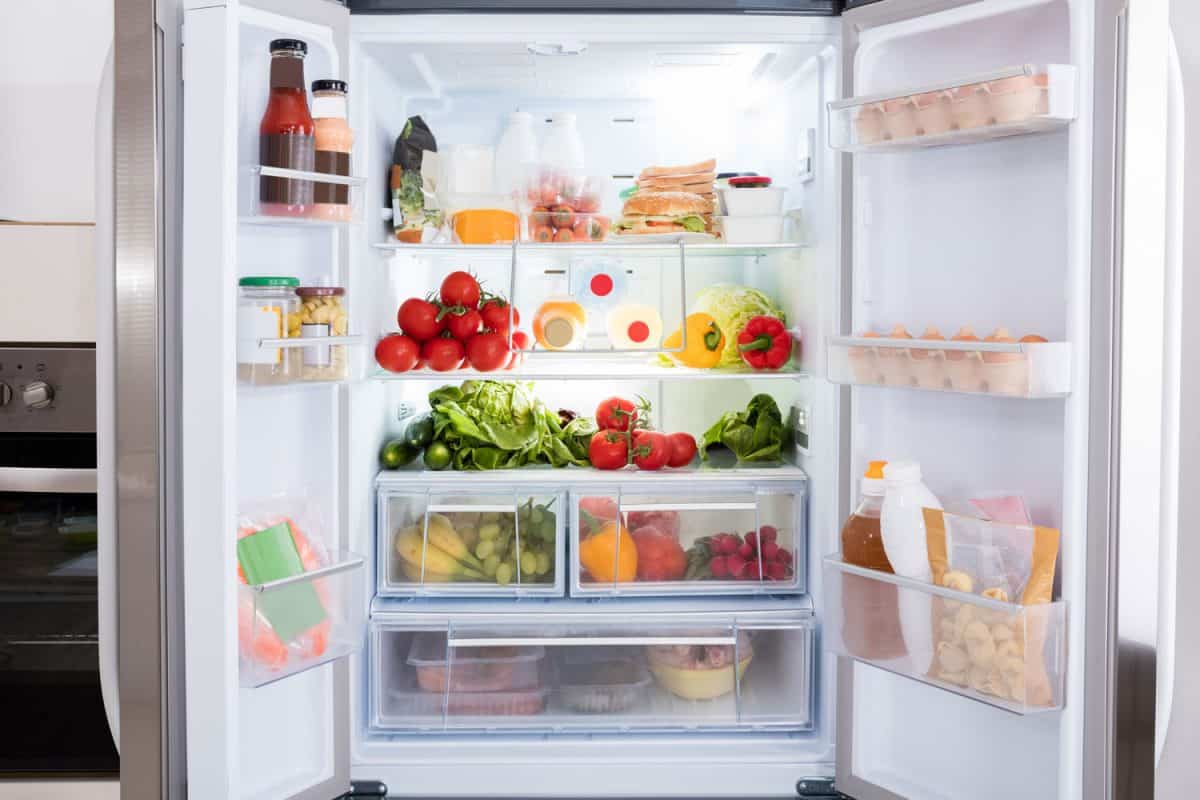
As we mentioned, the air circulating in a fridge will draw moisture from anything it passes through. So, if it can dry out the meat, it's safe to assume that it can also do the same with fruit.
In general, delicate produce can dry out and wilt over time inside a fridge. However, that doesn't mean you should avoid storing it in one. There is a designated area specifically for storing delicate produce.
You might know it as the crisper drawer. As some suggest, the fruits that you can keep in a crisper drawer include:
- Apples
- Apricots
- Blueberries
- Cranberries
- Grapes
- Peaches
- Plums
- Pears
The crisper drawers might also come with adjustable humidity settings. So, if you use the drawer in high humidity, ethylene-sensitive fruits and vegetables will last longer. On the other hand, the low humidity setting would be best for ethylene-producing fruits.
It's a convenient way to adapt to the requirements different fruits need. If your crisper drawer does not come with an adjustable humidity setting, it will typically be a high humidity crisper.
To Wrap Things Up
The refrigerator is not an area that most would typically think too hard about. You put food inside so it can last longer. However, as we've found out, leaving it without cover will only help dry it out faster. We hope you found the information above helpful.
Before you go, do you have other appliance concerns? Are you wondering if a convection oven dries out food? To learn more, check out our post:
Do Convections Ovens Dry Out Food?
Do you own a Whirlpool fridge? Is it running constantly? If you'd like to know more, check out our post:
Why Does My Whirlpool Refrigerator Keep Running?

